- Home
- Nick Hornby
State of the Union Page 8
State of the Union Read online
Page 8
“If I even knew you had one. Indeed, if I even knew you.”
“I’m presuming we’d be friends.”
“Do you think we would?”
“In the right circumstances.”
“Talk me through them.”
“Don’t be so rude,” Louise says.
“Why is that rude?”
“Sarcastic, then.”
“You were the one who said we’d only be friends ‘in the right circumstances.’ Why is it sarcastic to ask what those circumstances might be? I’d simply presumed that we’d be friends in all circumstances.”
“You weren’t presuming that at all. You were just trying to make me feel bad.”
Tom thinks about this.
“You’re right,” he says. “That’s depressing.”
“Which bit?”
“You knew I was winding you up when I said I can’t imagine us not being friends. In other words, I was suggesting the complete opposite is true. But husbands and wives don’t have to be friends, do they?”
“I’d have thought so, yes. Let’s say that on the night we met, we hadn’t ended up going to bed together,” Louise says. “Let’s say we had an interesting and enjoyable conversation and then went our separate ways. What then?”
“What then what?”
“Would you have followed up?”
“Yes, of course.”
“Why ‘of course’?”
“Because I wanted to sleep with you.”
“Sex is off the table.”
“Why?”
“Because in the parallel universe I’m describing, we’re not attracted to each other.”
“Oh,” Tom says. “Well, I wouldn’t have spoken to you in the first place.”
“You were that shallow?”
“It was a party. We were in our twenties. You have a good look round the room, and you think, Well, I’ll start there. And you were where I started.”
“How about this, then: We have a mutual friend who asks us round to dinner. We get on. The mutual friend asks us to dinner again. We get on again. The third time it happens, we exchange numbers and agree to go out for a drink.”
“So sex is back on the table.”
“No.”
“I’m not following any of this.”
“I’m talking about friendship. Could we have been friends if we hadn’t slept together?”
“I can’t see it.”
“Thanks.”
“The thing is, I didn’t have any friends like you. I still don’t have any friends like you. When I met you, you had no idea why anyone would shout ‘Judas’ at Bob Dylan.”
“Now I even know the shouter’s name.”
This makes Tom happy.
“Do you?”
“Yes,” says Louise. “Keith Butler. He lives in Toronto.”
Tom is genuinely impressed.
“Wow.”
“Sidetrack.”
“I don’t think I knew anyone who had a Biology O Level, let alone someone who would devote their life to the health problems of elderly people.”
“You hardly knew anyone who cleaned their teeth.”
“I cleaned mine,” Tom says. “Still do.”
“I know. But where are you going with Keith Butler and gerontology?”
“Don’t you see? They’re what’s so great about sex.”
“Really? There’s nothing else you can think of?”
“Forget about Keith Butler and old people. I’m talking about sexual attraction. Sometimes we want sex with people who don’t belong in our particular . . . category.”
“Especially so in your case,” Louise says. “Otherwise you’d only have sex with slightly malodorous men with a bad pot habit who only see daylight during the festival season.”
“What about Kim?”
“Or a slightly malodorous woman with a bad pot habit who only sees daylight during the festival season.”
“Lots of people think she’s sexy.”
“‘Sexy’ in this case meaning ‘owns a lot of old records.’”
Tom makes a face, as if to say, Well, what else could “sexy” mean?
“But you know what I’m saying,” Tom says. “We wouldn’t have been friends. But we slept together and found all sorts of things we had in common that we’d never have come across otherwise.”
“For example?”
“Crosswords.”
“That’s one.”
There is a pause.
“Kids.”
“You can’t put kids on the list,” Louise says.
“Why not?”
“They weren’t a shared interest before we had them.”
“We both wanted them. If it had been dogs, and we’d ended up with a couple of cocker spaniels, you’d have allowed it.”
“All right. Kids and crosswords.”
“And I like the way you think. I’ve never met anyone who thinks like you.”
“About what?”
Tom gestures vaguely.
“The world. Science. That sort of thing.”
“This is nonsense.”
“Yes, I’m afraid it is.”
“You don’t care how I think.”
“Not really,” says Tom cheerfully. “So we’re not friends, is that the upshot?”
“It’s not a helpful way of looking at things. We’re married. It’s different. We have created a whole life together despite everything. A language, a family. Some kind of understanding. An intimate knowledge of everything to do with the other person. What would you call all that?”
“Well. I know what Kenyon would call all that.”
“I fear so.”
“I suppose it is, though, isn’t it?”
“I think it might be,” Louise says.
“Huh.”
“So why is that such an unsatisfactory answer?”
“I know what you mean.”
“Do you?”
“I even think I know why.”
“Go on.”
“You won’t be angry with me?” says Tom.
“No.”
“Well, it’s love, but without the feeling, if you know what I mean.”
“Exactly!”
“Oh, phew.”
“Love without the feeling!” says Louise with excitement. “That’s it!”
“You don’t need to be that enthusiastic.”
“I mean, why are the kids always saying ‘Love you!’ ‘Love you, Mum!’ ‘Love you, Dad!’?”
“I never said that to my parents.”
“Well, there’s a reason for that. But they say it all the time.”
“I do think they love us. But deep down, maybe. Not on the surface, where cheap sentiment lives.”
“So when they say it, it’s cheap sentiment?”
“Means nothing.”
“Do you think that’s why we don’t say ‘I love you’ to each other?” Louise says.
“I do, yes. We don’t use the expression glibly. We save it for when it counts.”
“Plus, we love without feeling.”
“Perhaps we should practice saying it anyway. We know it wouldn’t be glib with us. It would be a simple, factual recognition of the state that exists between us.”
“I think that’s a good idea.”
Neither of them says anything.
“Let’s put it on the list,” says Tom.
“Might be a good thing to do with Kenyon.”
“Absolutely.”
“You know how you have to go to AA meetings even when you’ve given up drink?”
“Yes, of course. They have to keep saying they’re alcoholics forever. ‘My name’s Tom, and I’ve been sober for ten years.’ I’m not an alco
holic, by the way.”
“That’s for discussion another time. Well, I think we might be like that.”
“Like what?”
“Sort of, ‘Our names are Tom and Louise, and we are in a permanent marital crisis, even though we live together and have sex.’”
“I’m not seeing Kenyon forever.”
“No. I wasn’t saying that. But I think we should acknowledge that we have a flawed marriage. We live on a fault line, and the house might collapse at any moment.”
“And there’s nothing we can do about that? When we started, you said you wanted to rebuild the architecture of our entire marriage.”
“I remember that,” Louise says.
“But it can’t be done.”
“I wouldn’t have thought so, no. Otherwise it wouldn’t be our marriage anymore.”
“No. But it might actually be somewhere we might want to live.”
Louise spots the old couple emerge from Kenyon’s house.
“Look! He’s still with us!”
Tom grins.
“Oh, wow. That’s made me feel quite hopeful about everything.”
“Would you like another drink?”
Tom looks at her, astonished. It’s as if Brigitte Bardot had offered him sex in 1963.
“Are you serious?”
“Yes. Let’s get drunk.”
“What about Kenyon?”
“I’ll text saying that there has been a child emergency. You go and get the drinks.”
Tom still cannot absorb his good fortune.
“I don’t know what to say.”
He stands up and heads for the bar, but then turns back to her.
“I do know what to say. I love you.”
He doesn’t mean it. Louise rolls her eyes and begins to look for Kenyon’s phone number.
NICK HORNBY is the author of the bestselling novels Funny Girl; Juliet, Naked; Slam; A Long Way Down; How to Be Good; High Fidelity; and About a Boy; and the memoir Fever Pitch. He is also the author of Songbook (a finalist for a National Book Critics Circle Award), Shakespeare Wrote for Money, and The Polysyllabic Spree, and editor of the short story collection Speaking with the Angel. A recipient of the American Academy of Arts and Letters’ E. M. Forster Award and Oscar-nominated for his screenplays for An Education and Brooklyn, Hornby lives in North London.
What’s next on
your reading list?
Discover your next
great read!
Get personalized book picks and up-to-date news about this author.
Sign up now.

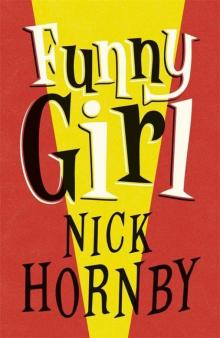 Funny Girl
Funny Girl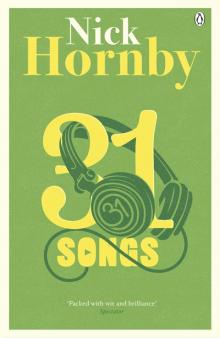 31 Songs
31 Songs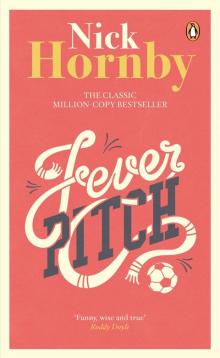 Fever Pitch
Fever Pitch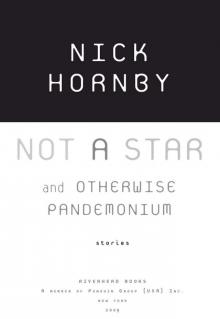 Not a Star and Otherwise Pandemonium
Not a Star and Otherwise Pandemonium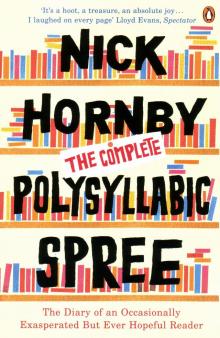 The Complete Polysyllabic Spree
The Complete Polysyllabic Spree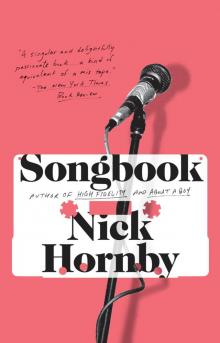 Songbook
Songbook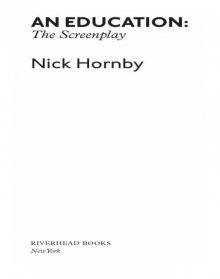 An Education
An Education Slam
Slam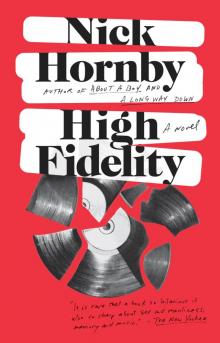 High Fidelity
High Fidelity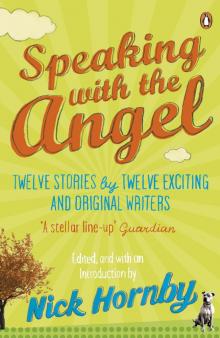 Speaking With the Angel
Speaking With the Angel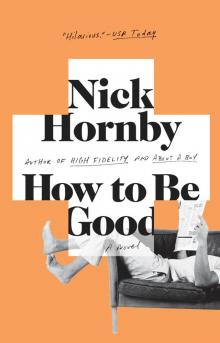 How to Be Good
How to Be Good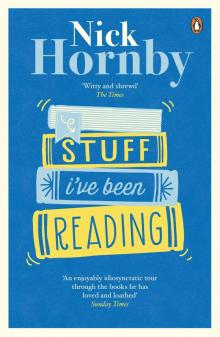 Stuff I've Been Reading
Stuff I've Been Reading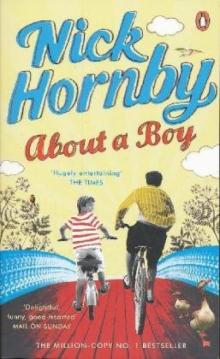 About a Boy
About a Boy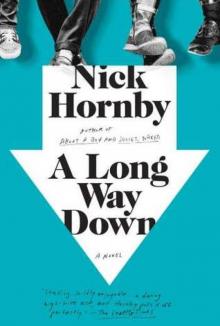 A Long Way Down
A Long Way Down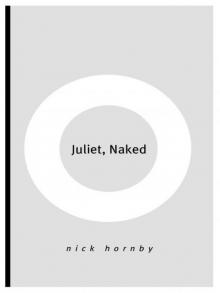 Juliet, Naked
Juliet, Naked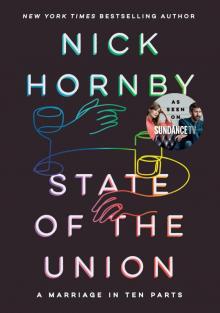 State of the Union
State of the Union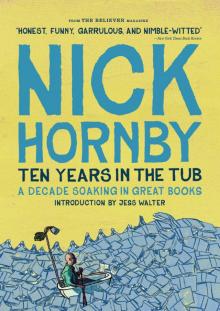 Ten Years in the Tub: A Decade Soaking in Great Books
Ten Years in the Tub: A Decade Soaking in Great Books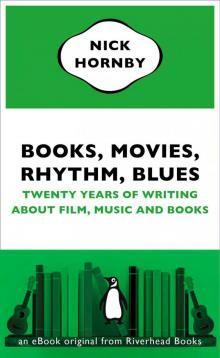 Books, Movies, Rhythm, Blues: Twenty Years of Writing About Film, Music and Books
Books, Movies, Rhythm, Blues: Twenty Years of Writing About Film, Music and Books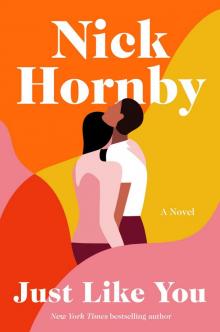 Just Like You
Just Like You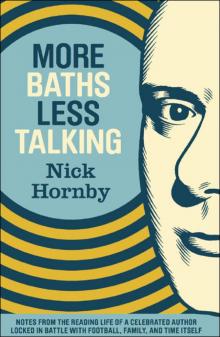 More Baths Less Talking
More Baths Less Talking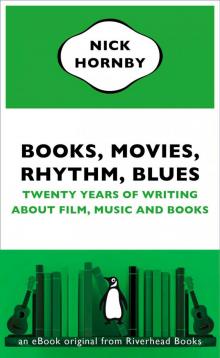 Books, Movies, Rhythm, Blues
Books, Movies, Rhythm, Blues